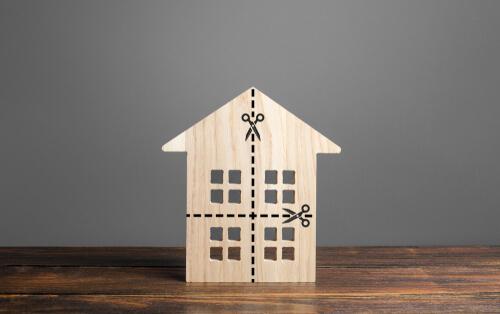What Types of Property Do a Couple Need to Address During Divorce?
 Getting a divorce is never an easy process, and there are many complex issues that a couple will need to address before their marriage can be legally dissolved. Property division can be one of the most difficult aspects of the divorce process. Not only does a couple have to figure out who will get what, but they will also have to determine the value of each asset. This can be a complicated and emotional process, but its goal is to ensure that all marital assets are distributed fairly and equitably. By understanding the different types of property that may need to be considered during a divorce, a person can make sure they will be prepared to make the right decisions.
Getting a divorce is never an easy process, and there are many complex issues that a couple will need to address before their marriage can be legally dissolved. Property division can be one of the most difficult aspects of the divorce process. Not only does a couple have to figure out who will get what, but they will also have to determine the value of each asset. This can be a complicated and emotional process, but its goal is to ensure that all marital assets are distributed fairly and equitably. By understanding the different types of property that may need to be considered during a divorce, a person can make sure they will be prepared to make the right decisions.
Different Types of Marital Assets
In New York, a divorcing couple is required to divide all of their marital property, which includes all property they purchased or acquired after the date they became legally married and before they entered into a legal separation or began the divorce process. Property must be divided “equitably,” and while an exact 50/50 split is not required, each spouse should receive a fair and just share of the marital estate that will allow them to provide for their needs going forward.
During the divorce process, a couple will need to consider multiple types of property, including:
-
Real estate – This can include the family home, vacation property, rental properties, and any other real estate that is jointly owned. While one or both parties may wish to retain ownership of their marital home, doing so may not be financially feasible on a single income, so it may be necessary to sell the home during the divorce process. If one spouse will have sole ownership, the other spouse will need to be removed from the home’s title and mortgage.
-
Vehicles – All vehicles owned by the couple, including cars, trucks, motorcycles, RVs, and boats, will need to be divided during the divorce. While each spouse may retain ownership of the vehicle they use most often, differences in the value of vehicles may need to be addressed.
-
Furniture and household belongings – A couple will need to decide how to divide the personal property that they acquired together during their marriage, such as home appliances, tools, decorations, and kitchen utensils. Sentimental value can sometimes play a role in these decisions, especially when each spouse has positive memories associated with items in their home used by themselves or their children.
-
Valuables – A couple may own multiple types of high-value items, such as jewelry, art, collectibles, and family heirlooms. Appraisals may need to be performed to determine the actual monetary value of different items.
-
Financial assets – Bank accounts, investments, and similar assets will all need to be divided during divorce. This can be a complex process, especially if the couple has multiple accounts and investments.
-
Retirement assets – These can include 401(k)s, pensions, IRAs, and other retirement benefits earned by either spouse during their marriage. To avoid tax issues or penalties, the division of these assets may need to be done through a Qualified Domestic Relations Order (QDRO).
-
Debts – Any debts that the couple has incurred during their marriage, such as credit card debt, student loans, and mortgages, will need to be divided during divorce. Couples should also be aware that even if joint debts are allocated to one spouse, creditors may still seek repayment from the other spouse in the future.
Contact Our Hudson Valley Property Division Attorney
If you are going through a divorce and need assistance with property division, contact our experienced Rockland County asset division lawyer. At the Law Offices of Robert S. Lewis, P.C., we can help you understand your rights and options under New York law, and we will guide you through every step of the divorce process. Call 845-358-7100 to set up your free consultation today.
Source:
https://www.nysenate.gov/legislation/laws/DOM/236


